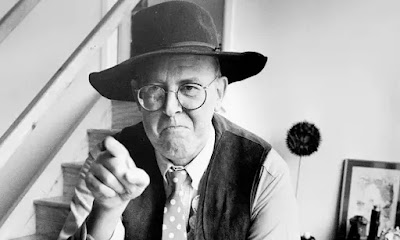It felt good to return to work, even if it was only for a day. The snow had finally melted, and whilst I achieved some of what I’d set out to do, the day was marred by a series of power outages. According to work colleagues, these interruptions had been occurring all week, and although National Power Networks had dug up the road, they seemed unable to determine the cause of the problem or give a time for its resolution. The other strange thing was not all areas of the factory were affected – something to do with our 3-phase power supply.
Several members of staff were also experiencing problems with their domestic water supply, due to a spate of burst pipes, affecting large areas of Tunbridge Wells, Southborough, and Crowborough. With industrial action affecting rail services, postal deliveries, and hospital care, on a scale not experienced since the 1970’s, it really does seem like the whole country is falling apart. Still, onward, and upwards, and on Thursday evening Matthew and I took a drive over to the Tesco superstore at Riverhead, to stock up on Christmas goodies. This annual, father and son trip is something of a tradition in the Bailey household, as Matthew likes to buy items such as mince pies, a Christmas pudding, brandy sauce, plus a section of cheeses. We were really surprised to find the store absolutely heaving, something we didn’t expect at 8.30 in the evening. It was that busy, that I donned a mask, a sensible precaution in case my immune system is still compromised. On the way home, I suggested a short diversion and stopping off at the Plough at Leigh, on the way home. This was sensible thinking on my part, as our delayed arrival would allow Mrs PBT’s to watch the end of a programme she’d been following. It was some sort of psychological elimination game, not my cup of tea, but I knew she wouldn’t appreciate us crashing in, with bags full of shopping, right at the crucial moment. I’m good to her, like that, but in fairness, it did provide the perfect opportunity to visit a pub I don’t get over to, that often. The Plough is an attractive, part tile-hung, 16th Century building, set on a bend a mile or two from Leigh village. Up until the mid-1970’s, it was a simple country ale house, of the type which was once very common in this part of Kent, but has been through several renovations and several changes of ownership over the past four decades. It has always been a popular place to visit for the people of Tonbridge and the surrounding area, but as most of my recent visits have been during the hours of daylight, and in summer time as well, I wasn’t sure what to expect as we pulled into the car park. The fact there were very few vehicles parked there, should have been a clue, but as we walked along the path in front of the pub, I couldn’t help noticing it was virtually empty. Stepping inside we saw two women sitting at a table in front of the bar, and upon hearing us enter, one of the ladies told us they were about to close. Before I could reply, she’d obviously taken pity on us and said we’d be welcome to order a drink, as she didn’t want us to go away thirsty. I thanked her and replied that we’d just have a couple of halves, Tonbridge Old Chestnut for me and Amstel for Matthew. Our hostess apologised and said it had been very quiet that evening, and she wondered where everybody was. “Shopping at Tesco’s in Sevenoaks,” was my reply, but after a brief chat, as she poured our drinks, she did tell us that trade had been pretty good. I said that was encouraging, and after paying for our drinks, Matthew and I sat down at a table, adjacent to the fire.I was rather surprised to find it lit, in view of the mild weather we we’d been having, but it added a nice warming touch to the pub. My Old Chestnut was very good, at least a 4.0 NBSS, had I been scoring. I’m not a huge fan of Tonbridge beers, but they must be doing something right, as they have been brewing for a decade or more, and their products are quite a common sight in local pubs.
We finished our drinks, in order to not overstay our welcome, and thanked the landlady and her friend as we left. I could help noticing the sign at the bar stating cash payments only. The Plough was the pub I mentioned in my article concerning local banks shutting up shop, and as Mrs PBT’s and her friends found out the landlady then was bemoaning the loss of banking facilities in Tonbridge. She was cheesed off at having now to drive into Sevenoaks, in order to bank the weekly takings and procure sufficient change.
I totally understand her frustration, and the situation in Tonbridge will be even worse come January, as HSBC, the town’s sole remaining clearing bank, will also be closing its doors for the final time. As I said towards the start of this post, the whole country is falling apart!
.




















